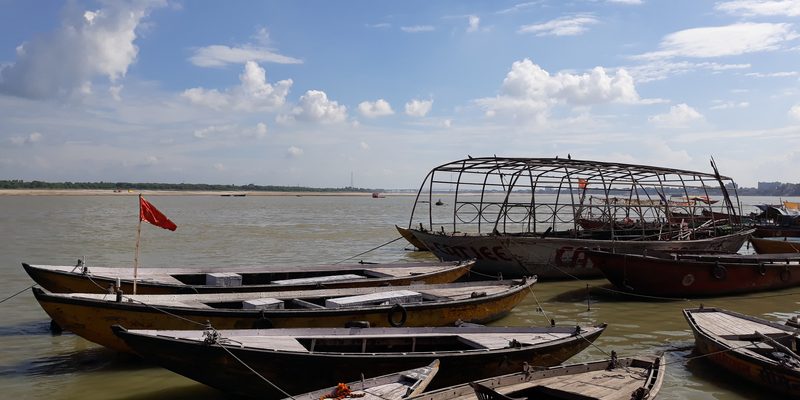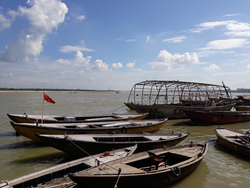UNEP supported Holistic Waste Management Strategy for Varanasi

United Nations Environment programme (UNEP) and ICLEI – South Asia signed a Small Scale Funding Agreement in September, 2017 with an objective of developing a holistic waste management strategy for the holy city of Varanasi.
The project will identify relevant stakeholders involved in managing waste in the city and assess the baseline situation of the existing waste management practices and its impact on water and air pollution in the city. The idea is to engage all relevant stakeholders in a dialogue to arrive at a strategy for holistic waste management in Varanasi.
The two-day meeting between city officials, private waste management operators and other stakeholders along with officials from United National Environment Programme (UNEP), Institute for Global Environmental Strategies (IGES) and ICLEI South Asia were conducted on the 23rd and 24th of October. During the meeting officials were introduced to the project and the scope of activities was discussed and finalised to ensure that expectations of the city and objectives of the project are in sync with each other.

The city officials indicated their preference for support from UNEP for practical implementation of pilot initiatives in the city in addition to the support given for preparation of the holistic waste management strategy. Taking consideration of requests from the city, the team decided to implement a pilot project in one ward. The larger aim of this effort will be to ensure the provision of segregated biodegradable waste to the one of the biomethanation plant in the city.
It was suggested by the project implementing team that capacity building activities, for the sanitary workers involved in door to door waste collection services and IEC activities targeted at individual households could be undertaken for ward 21, for a period of four months. The project team will train and guide sanitary staff for conducting quantification and characterisation of waste in the ward.

Moreover, current situation of the waste system will be analysed and solutions will be recommended to improve the system. The project team will facilitate practical implementation of activities in one ward while holistic waste strategy for the entire city will be developed. The project team also went on field visits to have an understanding of the existing collection, transportation, processing and disposal system.




